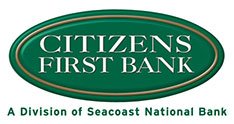Identity Theft
Identity Theft is a serious crime in which someone steals your personal information and uses it without your permission. Incidents of Identity Theft are on the rise and can disrupt your finances, credit history and reputation.
Identity thieves could…
- Steal your purse, your wallet, or your mail taking your credit cards, driver’s license, passport, health insurance card. They will target any item that shows your personal information
- Dumpster dive looking for bills and other documents containing your sensitive information
- Call your home or send you an email purporting to be from a legitimate company in an effort to trick you into revealing your personal information
- Advertise employment opportunities in local papers or on websites like Craig’s List and ask you to send personal information to qualify for the position
- Work in legitimate businesses, medical or government offices and steal information on the job.
As you can see, there are many ways your personal information can be compromised. No matter how cautious you are there is no sure way to prevent identity theft from occurring. Knowing how to protect your information and what to do if your identity is stolen can help you reduce the risk.
Red flags of identity theft
- Mistakes on your bank, credit card, or other account statements
- Your regular bills and account statements do not arrive on time
- Bills or collections notices for products or services you never received
- Calls from debt collectors about debts that don’t belong to you
- A notice from the IRS that someone used your social security number
- Mail, email or calls about accounts or jobs in your minor child’s name
- Unwarranted collection notices on your credit report
- Businesses refuse to take your checks
- You are turned down unexpected for a loan or a job
How to protect your personal information
- Read your credit reports. You can order a free report once a year from all three major credit reporting agencies. To order go to www.annualcreditreport.com or call 1-877-322-8228.
- Review your bank, credit card and account statements as well as the explanation of benefits from your health insurance company. Contact the business any time you find a mistake or when a statement doesn’t come on time.
- Shred all documents that show personal, financial and medical information before you throw them away.
- Don’t respond to email, text or phone messages asking for your personal information. Delete these messages.
- When shopping or banking online use websites that protect your financial information with encryption. An encrypted site has “https” at the beginning of the web address; the “s” is for secure.
- Use anti-virus and anti-spyware software and a firewall on your computer.
For assistance if you are a victim
Need Help? Visit our Contact List or
Contact the Federal Trade Commission (FTC) by telephone at (877)FTC-HELP or
For filing a complaint electronically via the FTC’s website at www.ftc.gov.

